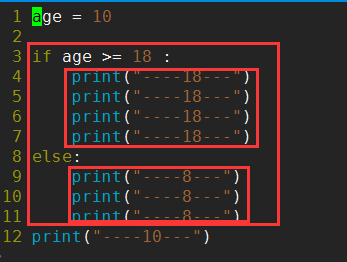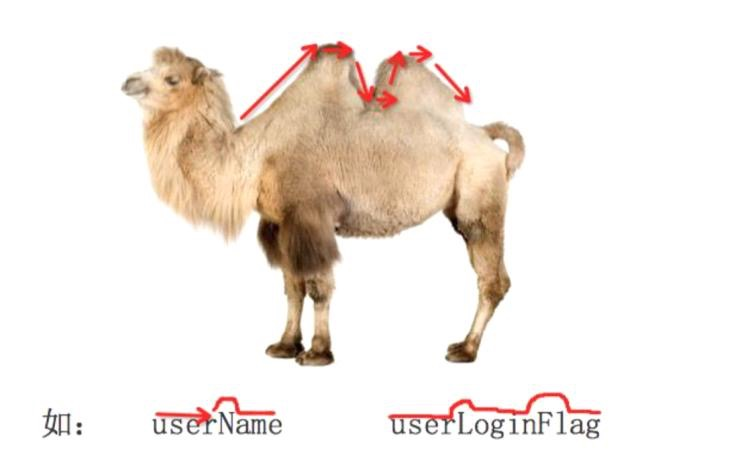1.变量 2.打印名片 3.raw_input() 和 input() 4.变量类型 type 5. if-else 6.标示符的规则 7.关键字 8.运算符 9.print打印多个值
1.变量
score = 100 #定义了一个变量, 变量名字score 它里面存储了一个数值 100 #变量名 = 数值 a = 180 #单位是cm high = 180 #身高180cm applePrice = 3.5 #苹果的价格 元/斤 weight = 7.5 #购买的苹果的重量 斤 money = applePrice * weight #如果money=xxx是第一次的话,那么就表示定义> 了一个变量 money = money - 10 #如果money = xxx 不是第一次出现,那么就不是定义变量, 而是给这个已经存在的变量赋上一个新的值
2.打印名片
- input获取必要的信息
- print打印名片
#-*- coding:utf-8 -*- #1.input获取必要的信息 name = input("请输入名字:") age = input("请输入年龄:") sex = input("请输入性别:") qq = input("请输入qq号码:") #2.print打印名片 print("================") print("姓名:%s"%name) print("姓名:%s"%age) print("姓名:%s"%sex) print("姓名:%s"%qq) print("================")
3.raw_input() 和 input()
python2版本 input , 当成代码去执行 1+4
python@ubuntu:~/pythons06$ ipython Python 2.7.12 (default, Jul 1 2016, 15:12:24) In [1]: name = input("请输入名字:") 请输入名字:alex --------------------------------------------------------------------------- NameError Traceback (most recent call last) <ipython-input-1-70a3a8047e72> in <module>() ----> 1 name = input("请输入名字:") <string> in <module>() NameError: name 'alex' is not defined
python@ubuntu:~/pythons06$ ipython In [1]: age = input("请输入:") 请输入:1+4 In [2]: age Out[2]: 5 In [3]: age = 1+4 In [4]: age Out[4]: 5
python3版本 input ,接受表达式输入
python@ubuntu:~/pythons06$ ipython3 Python 3.5.2 (default, Jul 5 2016, 12:43:10) Type "copyright", "credits" or "license" for more information. In [1]: name = input("your name:") your name:alex In [2]: name Out[2]: 'alex' In [3]: print("%s"%name) alex
python2中的raw_input(),接受表达式输入
python2 版本 In [2]: name = raw_input("请输入:") 请输入:alex In [3]: name Out[3]: 'alex'
4.变量类型 type
python@ubuntu:~/pythons06$ python3 10-判断一个年龄.py 输入你的年龄:18 Traceback (most recent call last): File "10-判断一个年龄.py", line 8, in <module> if age >= 18 : TypeError: unorderable types: str() >= int()
In [1]: a = 100 In [2]: b = 3.14 In [3]: c = "alex" In [4]: type (a) Out[4]: int In [5]: type (b) Out[5]: float In [6]: type (c) Out[6]: str
5. if-else
if 用来完成判断
if 条件:
条件成立的时候,做的事情
else:
条件不成了的时候 做的事情
#-*- coding:utf-8 -*- #1 input 获得输入年龄 age = input("输入你的年龄:")#input获取的所有数据是字符串类型, 20 --》age --》 “20” age_num = int(age) #----》整型 去除了双引号之后的值 20 #2 if 如果年龄大于18: if age_num >= 18 : print("已经成年,可以看18禁") # else: else: print("回家写作业去")
执行结果: python@ubuntu:~/pythons06$ python 11-if-else.py 输入你的年龄:22 已经成年,可以看18禁 python@ubuntu:~/pythons06$ python 11-if-else.py 输入你的年龄:11 回家写作业去
if 条件满足,执行多少条语句
age = 10 if age >= 18 : print("----18---") print("----18---") print("----18---") print("----18---") else: print("----8---") print("----8---") print("----8---") print("----10---")

6.标示符的规则
-
标示符由字母、下划线和数字组成,且数字不能开头
afdaAFJAL 字母 _ _ 下划线 733 数字 _3453243 数字不能开头 a343435
- python中的标识符是区分大小写的

命名规则
-
见名知意
名字 就定义为 name , 定义学生 用 student
-
驼峰命名法

小驼峰式命名法:例如:myName、aDog
大驼峰式命名法:例如:FirstName、LastName
- 下划线
在程序员中还有一种命名法比较流行,就是用下划线“_”来连接所有的单词,比如send_buff
7.关键字
-
什么是关键字
python一些具有特殊功能的标示符,这就是所谓的关键字
关键字,是python已经使用的了,所以不允许开发者自己定义和关键字相同的名字的标示符
>>> import keyword >>> >>> keyword.kwlist ['False', 'None', 'True', 'and', 'as', 'assert', 'break', 'class', 'continue', 'def', 'del', 'elif', 'else', 'except', 'finally', 'for', 'from', 'global', 'if', 'import', 'in', 'is', 'lambda', 'nonlocal', 'not', 'or', 'pass', 'raise', 'return', 'try', 'while', 'with', 'yield']

8.运算符


In [3]: 2*2 Out[3]: 4 In [4]: 2**2 #次方 Out[4]: 4 In [5]: 2**3 Out[5]: 8 In [6]: In [6]: 2**10 #重要 Out[6]: 1024 In [7]: 2**16 #重要 Out[7]: 65536
In [10]: 100*3.14 Out[10]: 314.0 In [11]: "H"*10 Out[11]: 'HHHHHHHHHH' In [12]: "sorry"*10 Out[12]: 'sorrysorrysorrysorrysorrysorrysorrysorrysorrysorry' In [14]: "="*50 #重要 Out[14]: '=================================================='
9.print打印多个值
name = "alex" age = 23 sex = "man" print("姓名是:%s,年龄是:%d,性别是:%s"%(name,age,sex))
